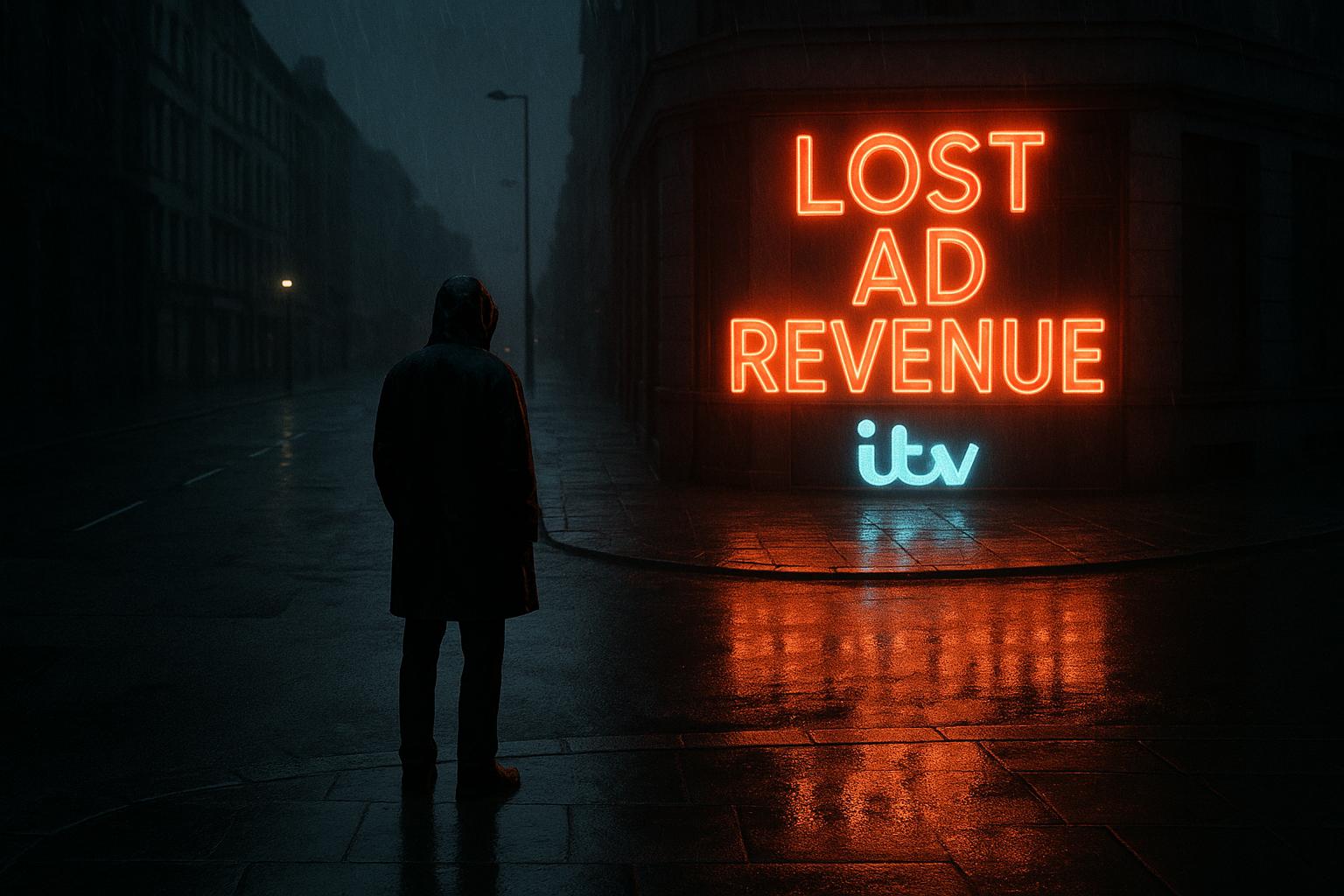ITV is currently grappling with significant challenges in its advertising sales, a core revenue stream for the commercial broadcaster, as businesses hold back on marketing spend amid economic uncertainty and an extended period of waiting for Chancellor Rachel Reeves' second Budget. According to The Mail on Sunday, this advertising slowdown has hit ITV particularly hard, coming shortly after Liberty Global, ITV’s cornerstone investor, reduced its stake from 10% to 5%. This shareholder shake-up reflects broader pressures facing the broadcaster.
The decline in advertising is notable because ITV remains heavily reliant on it for profit, despite efforts by CEO Carolyn McCall to diversify revenue sources. The company has expanded its studio operations, which produce popular shows like "Love Island," and its streaming service, ITVX; together, these now account for half of ITV’s sales. Nonetheless, major advertisers—especially supermarkets, some of the UK’s largest employers and advertising spenders—have been cautious. They remain wary following cost pressures from last year’s hikes in employers' National Insurance Contributions and uncertainty about potential tax increases in the Chancellor’s upcoming Budget, which could further squeeze consumer spending just ahead of the Christmas season.
Marketing industry data supports this cautious stance, with only 22% of companies anticipating increased marketing budgets in the third quarter after a slow start to the year. This hesitancy has led to reductions in higher-cost media spending, including prominent brand campaigns and outdoor advertising. Analysts suggest even if advertisers return strongly post-Budget, the timing will be too late to salvage the third quarter’s figures and will only have limited impact thereafter.
Investors’ concerns are reflected in ITV’s share price, which has drifted lower over the past decade amid competition from streaming giants like Netflix. Shareholder Liberty Global’s recent stake reduction — selling 193.4 million shares and generating about £135 million — has further rattled investor confidence. This transaction also positions investment firm Redwheel as ITV’s largest shareholder with a 6% stake. ITV faces stiff competition from streaming rivals while grappling with a sluggish advertising market. The company’s shares fell more than 12% following Liberty Global’s announcement, underscoring market nerves.
ITV’s recent financials have mirrored these struggles. The broadcaster reported an 8% revenue decline to £2.74 billion for the nine months ending September, worse than the expected 4% drop, affected by factors like last year’s US writers’ strike and tentative advertiser bookings ahead of government fiscal policies. Although ITV Studios, responsible for content for major platforms such as Disney+ and the BBC, is expected to post record annual earnings due to operational efficiencies and programme deliveries, the broader picture remains challenging.
Profit figures highlight the impact of declining advertising, with ITV’s pre-tax profit plunging from £501 million in 2022 to £193 million in 2023. The company describes a 'severe decline' of 15% in linear advertising, a reflection of companies tightening budgets amid the ongoing global economic downturn. However, there has been a bright spot as digital revenue increased by 19% to £490 million, reflecting a gradual shift in ITV’s revenue model. The ITVX streaming service saw reduced spending after a peak last year but remains a vital component expected to support future growth.
Looking ahead, ITV is banking on major events to revive advertising fortunes. Notably, next summer’s FIFA World Cup across the US, Canada, and Mexico is anticipated to boost ad revenues considerably. Past hits like "I'm a Celebrity... Get Me Out of Here" and big sporting events are seen as key drivers for holiday season advertising. However, the company is cautious, warning that economic uncertainty continues to pose a risk to the advertising market, with businesses potentially remaining guarded in their spending.
Despite the current difficulties, there are signs of recovery. ITV's first half of 2024 showed a 10% increase in total advertising revenue compared to last year, with digital advertising growing by 17%. Meanwhile, ITV Studios experienced a 13% revenue decline, partly attributed to the 2023 writers’ strikes and timing of programme deliveries. In response to the previous advertising slump, ITV reduced programming expenditure by £10 million, highlighting ongoing efforts to manage costs tightly.
In sum, ITV is navigating a complex media landscape marked by shifting advertising trends, shareholder changes, and economic headwinds. While the company has made strategic advances into studios and streaming, its traditional advertising business remains vulnerable to broader market uncertainties, pending potential relief from upcoming sporting events and government fiscal policies that could shape advertiser confidence moving forward.
📌 Reference Map:
- Paragraph 1 – [1] (This Is Money), [2] (Reuters)
- Paragraph 2 – [1] (This Is Money)
- Paragraph 3 – [1] (This Is Money)
- Paragraph 4 – [2] (Reuters), [1] (This Is Money)
- Paragraph 5 – [5] (Reuters), [2] (Reuters)
- Paragraph 6 – [3] (ITV News), [6] (Reuters)
- Paragraph 7 – [4] (Investing.com), [1] (This Is Money)
- Paragraph 8 – [7] (Marketing Beat), [3] (ITV News)
- Paragraph 9 – [1] (This Is Money), [6] (Reuters), [4] (Investing.com)
Source: Noah Wire Services
